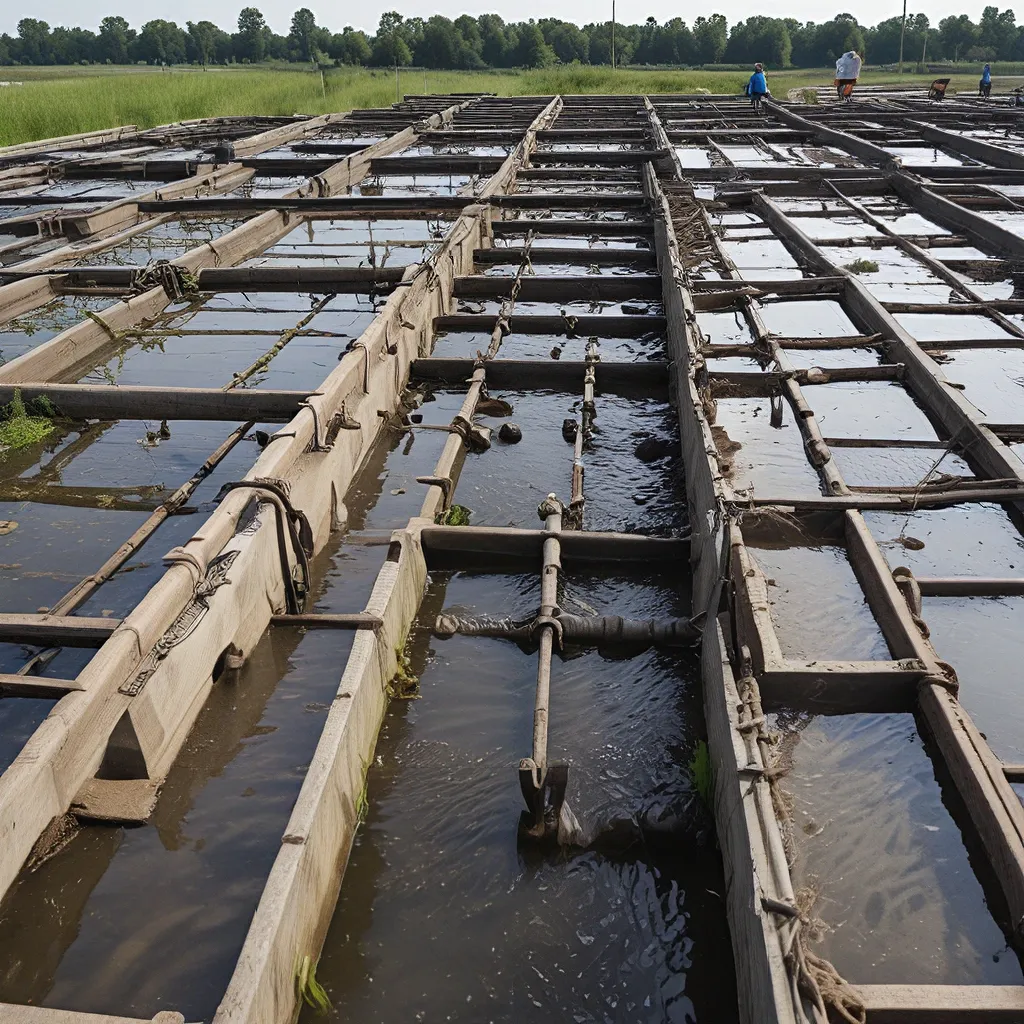
The Importance of Wastewater Treatment in Building Sustainable Communities
As a responsible member of our local community, I’ve come to appreciate the vital role that wastewater treatment plays in fostering a healthy, thriving environment. It’s easy to take for granted the infrastructure that allows us to seamlessly dispose of our household and industrial waste, but the reality is that the proper management and treatment of wastewater is essential for maintaining the delicate balance of our ecosystems and ensuring the well-being of our neighborhoods.
At the heart of this mission is a commitment to social responsibility – the understanding that our actions, both as individuals and as businesses, have a profound impact on the communities we serve. By prioritizing wastewater treatment and investing in sustainable solutions, we’re not just protecting the environment; we’re actively contributing to the overall quality of life for the people who call this place home.
Embracing a Whole Community Approach
One of the key principles that guides our approach to wastewater treatment is the “whole community” framework championed by organizations like the Federal Emergency Management Agency (FEMA). This philosophy emphasizes the importance of collaborative, inclusive decision-making, where all stakeholders – from local government officials to community leaders and individual residents – have a voice in shaping the solutions that will affect their lives.
By fostering this level of community engagement, we’re able to gain a deeper understanding of the unique needs and concerns of the people we serve. This, in turn, allows us to tailor our wastewater treatment services to better address the specific challenges faced by each neighborhood, whether it’s mitigating the impact of severe weather events, addressing environmental justice issues, or supporting local economic development initiatives.
Driving Social Impact Through Wastewater Treatment
But our commitment to social responsibility extends far beyond the technical aspects of wastewater treatment. We also recognize the transformative power that these services can have on the broader community, serving as a catalyst for positive social change.
For example, some organizations have leveraged their wastewater treatment initiatives to create community development programs as part of their corporate social responsibility (CSR) efforts. By investing in local infrastructure, providing job training, and supporting small businesses, they’re not only improving the environmental sustainability of their operations, but also fostering economic opportunity and community resilience.
Similarly, wind energy projects have been known to incorporate wastewater treatment solutions as part of their community engagement strategies, helping to build trust and goodwill with the local populations that host these large-scale developments. By addressing the community’s concerns and involving them in the decision-making process, these projects have been able to maximize their social impact and contribute to the overall well-being of the surrounding areas.
The Transformative Potential of Wastewater Treatment
As I reflect on the role of wastewater treatment in our community, I’m struck by the profound, multifaceted impact it can have. It’s not just about ensuring the proper disposal of our waste; it’s about building resilient, sustainable communities that can thrive in the face of environmental challenges and social upheaval.
By partnering with Alpha Wastewater, a leading provider of comprehensive wastewater treatment services, we’re able to leverage the latest technologies and best practices to minimize our environmental footprint and maximize our positive social impact. But more than that, we’re tapping into the transformative potential of these services, using them as a springboard for community development, economic empowerment, and ultimately, a better quality of life for all.
Fostering a Culture of Collaboration and Innovation
As we continue to navigate the complex landscape of wastewater treatment, it’s clear that collaboration and innovation will be key to our success. We must be willing to embrace new technologies, explore alternative approaches, and engage with a diverse array of stakeholders to ensure that our solutions are tailored to the unique needs of our community.
And perhaps most importantly, we must maintain a spirit of curiosity and openness to learning. The field of wastewater treatment is constantly evolving, with new research and discoveries emerging all the time. By staying informed, challenging our assumptions, and fostering an environment of intellectual discourse, we can ensure that our efforts remain relevant, impactful, and responsive to the ever-changing needs of our community.
Conclusion: Wastewater Treatment as a Catalyst for Positive Change
In the end, I believe that wastewater treatment is about more than just the mechanical process of managing our waste. It’s about building stronger, more resilient communities that are better equipped to weather the storms of environmental and social change. It’s about empowering individuals, fostering economic opportunity, and nurturing a sense of shared responsibility for the well-being of our shared home.
As we continue to invest in the infrastructure and innovation that will drive the future of wastewater treatment, let us also remember the transformative power of these services – the ability to inspire hope, ignite collaboration, and catalyze positive change in the lives of the people we serve. It’s a responsibility that we take seriously, and one that we’re proud to embrace as we work together to create a more sustainable, equitable, and thriving future for all.